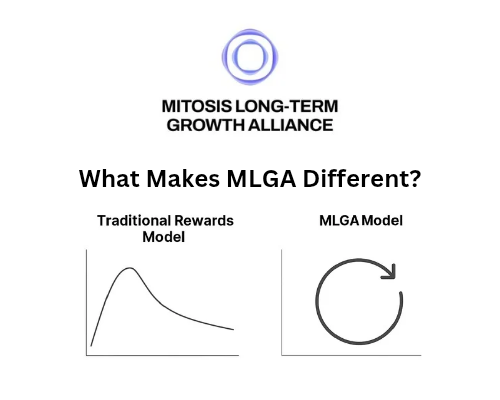Beyond Crypto: How Blockchain is Changing Industries Like Healthcare and Supply Chains

When most people hear "blockchain," they think of Bitcoin or cryptocurrencies. But blockchain is much more than just digital money. It's a powerful technology that can be used in many different industries to improve security, transparency, and efficiency.
In this article, we’ll explore how blockchain is being used outside of crypto, with real-world examples in healthcare, supply chain, finance, and more.
What Is Blockchain, Simply?
Blockchain is a type of digital record-keeping system. It stores information in blocks that are linked together (like a chain). Once data is added, it can’t be changed, making it very secure and trustworthy.
It’s like a shared digital notebook that everyone can see but no one can secretly change.
Blockchain in Healthcare
Secure Medical Records
Blockchain helps store patient records in a way that’s private, safe, and accessible only to authorized people. This prevents tampering and data leaks.
Example:
Estonia uses blockchain to manage citizens’ health records, giving patients control over who sees their data.
Accurate Drug Tracking
Fake medicines are a big problem worldwide. Blockchain can track each drug from the factory to the pharmacy, making sure it's real and safe.
Example:
IBM’s Blockchain for Pharma helps companies track and verify drugs through the supply chain.
Blockchain in Supply Chains
Tracking Products from Start to Finish
Blockchain allows companies to record each step a product takes — from raw materials to the store shelf. This improves transparency and trust.
Example:
Walmart uses blockchain to track the journey of food items (like mangoes and pork) to ensure freshness and safety.
Fighting Counterfeits
Luxury brands and electronics makers use blockchain to prove that their products are real, not fake.
Example:
LVMH (Louis Vuitton) uses a blockchain system called Aura to prove the authenticity of luxury goods.
Blockchain in Finance (Outside of Crypto Trading)
Faster and Cheaper Payments
Banks can use blockchain to send money across borders quickly and at lower costs, without using traditional middlemen.
Example:
Ripple’s blockchain helps banks send money globally in seconds, instead of days.
Transparent Auditing
Companies can use blockchain for accounting and auditing. Since records are permanent and traceable, it’s easier to check for fraud or errors.
Blockchain in Voting Systems
Secure Digital Voting
Blockchain can be used for secure and transparent voting in elections. It helps prevent fraud and ensures that every vote is counted correctly.
Example:
Voatz, a blockchain-based app, has been used in pilot voting programs in the U.S. to enable remote voting for military personnel.
Blockchain in Real Estate
Smart Contracts for Buying Property
With blockchain, you can use smart contracts — self-executing digital agreements — to buy and sell property without needing as many lawyers or agents.
Example:
Propy is a platform that helps people buy real estate using blockchain-based smart contracts, speeding up the process.
Benefits of Using Blockchain Outside Crypto
- ✅ Transparency: Everyone sees the same data.
- ✅ Security: Once data is added, it can't be changed.
- ✅ Efficiency: Cuts out middlemen and speeds up processes.
- ✅ Trust: Helps verify that data is real and accurate.
Conclusion
Blockchain is no longer just the technology behind crypto — it's becoming a valuable tool for many industries. From tracking medicines and verifying luxury items to securing votes and automating contracts, blockchain is improving how businesses and governments work.
As the technology grows, we’ll likely see even more creative uses of blockchain in everyday life.

Comments ()